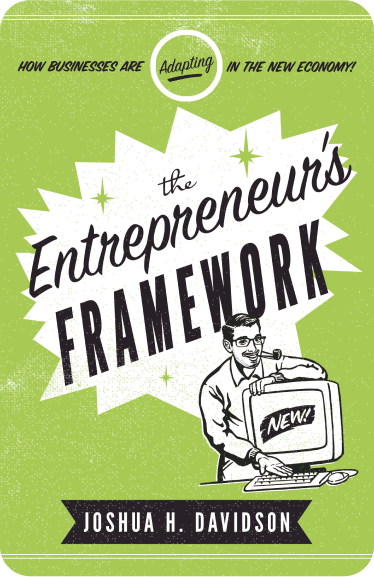Getting funding for your startup can be a complicated and intense process.
You have to have more than a brilliant idea. You need to know how to pitch to investors and what your options are.
In this post, we will take a look at something that has become increasingly influential in the world of startups in the past few years, solo venture capitalists and micro funds.
The Rise of the Individual Investor
Individual investors have always been a part of the venture capital ecosystem. Their participation and influence is nothing new.
However, this reach seems to have expanded over the past year or so. Initially, individual investors would write relatively small checks to young companies in their earliest stages. These days we are seeing a huge shift.
One big example of this is Playco’s recent deal:
Playco is a Tokyo-based mobile gaming startup that was founded in 2010. Last year it raised $100 million in series A funding, becoming essentially an instant unicorn.
This round was led by Sequoia Capital Global Entities and solo investor Josh Buckley. In an interesting turn of events, the entire round was led by Josh Buckley, who both determined the price of the round and took the board seat at the gaming company.
This is huge, especially when you consider the power that the legendary Sequoia Capital Global Entities holds.
Since 1972, they have invested in over 1000 companies, many of which have become some of the biggest in the world.
These include companies like Apple, PayPal, Google, LinkedIn, 23andme, DoorDash, Charlotte Tilbury, and Nvidia.
Some of the Pros for Investors and Founders

Why do both individual investors and founders find these types of deals attractive enough for them to become more and more common?
For one, venture capital is considered a hot asset class right now. Investors see it as a strong way to get the returns they want.
Also, this allows investors to get in at the ground floor of a venture strictly on their own terms before traditional venture firms can take over.
Data shared by Pitchbook shows that several notable solo investors who are making waves with this model ramped up their activity between 2017 and 2021.
Josh Buckley has nearly quadrupled the number of deals he led or co-led when you compare the years 2017 and 2021.
Another notable solo investor is former Twitter executive Elad Gil. In 2017 he led or co-led 9 deals. In the first half of 2021 alone, Gil led or co-led more than 20 deals.
Solo VCs Often Offer Founders Better Deals
On the other side of the equation, many founders view certain solo VCs as more than an investor.
They likely also consider them as impressive talents who can provide invaluable guidance to their venture.
Nikhil Basu Trivedi, a co-founder of Footwork Ventures, actually coined the term solo capitalist last year. He says:
“Solo capitalists want to show that they can compete for the best investments and win them.”
It is well-known in Silicon Valley that solo investors will often offer founders better deals than traditional firms. They can give better terms and higher prices for a chance to back startups that show promise.
The Importance of Talent and Speed

At Chop Dawg, one of our favorite things about working with smaller businesses is the flexibility, responsivity, and creativity that entrepreneurs and creators running more lean operations can harness.
While there are definite benefits to working with larger or more established firms, their very structure often limits how quickly they can respond to shifts in circumstances and make decisions.
While this makes them more measured and careful, the tradeoff comes in terms of flexibility.
As solo VCs work solo, they can work fast, respond fast, and make decisions fast. They don’t need to constantly check in with other partners or an entire corporation.
As many solo VCs want to prove themselves, they have a reputation for being more ambitious and offering a more personal touch when it comes to helping their portfolio companies succeed.
After all, they are trying to build their reputations, create powerful brands, and make smart moves.
Oren Zeev is the founder of Zeev Ventures and one of the most established and respected solo VCs. He says that his solo approach, he has no partners or staff, gives him more time to focus on helping founders.
Keep in mind that this has its pros and its cons. If a founder works with a truly brilliant solo VC, their company will flourish.
On the downside, this does leave founders vulnerable to the unchecked opinions and vision of just one person. There are many benefits to a more team-oriented approach.
A Quick Look at Micro VCs
So, what exactly defines a Solo Capitalist?
According to Trivedi, who coined the term, they are the next evolution of the Angel Investor. Essentially, the brand of the fund is tied entirely to an individual, and they raise large funds. These funds are at least worth $50 Million.
However, there also exists an exciting world of Micro Solo VCs, who raise smaller funds.
A well-known tech influencer actually did this in record time.
The host of the Twenty Minute VC podcast Harry Stebbings launched a micro fund worth more than $8 million called 20VC.
This is a part of a large group of micro-firms. First Republic counted about 900 of them in 2020.
Crunchbase provides a list of more than 3000 micro funds if you want to learn more about them.
Last year, VC firm TrueBridge Capital Partners actually embraced micro funds. It closed its first venture capital fund-of-funds focused completely on seed and micro-VC firms.
They invest in high-performing fund managers raising less than $200 million and very young companies in their early stages.
Micro VC is common in the US but is really taking off in India, where it is powering impressive growth. The startup and capital ecosystems are truly evolving quickly around the world.
Final Thoughts on Solo and Micro Venture Capital
Ultimately, understanding the startup ecosystem, what funding options are out there, and why can only empower entrepreneurs.
Knowing the pros and cons of any potential decision is key.
Also, as things evolve over time, and seem to change faster every year, you want to make sure to stay on top of any developments which might affect your startup.
What do you think? Comment below.
Since 2009, we have helped create 350+ next-generation apps for startups, Fortune 500s, growing businesses, and non-profits from around the globe. Think Partner, Not Agency.
Find us on social at #MakeItApp’n®

















